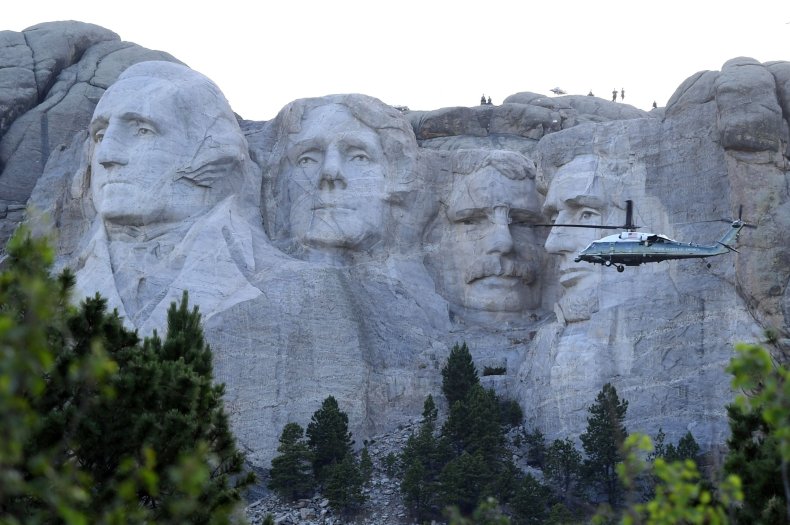Presidents Day, also known as Washington's Birthday in honor of the country's first president, is a federal holiday. It is observed on the third Monday of every February and this year takes place on February 15.
"Many government offices close on federal holidays and some private businesses may close as well. If the holiday falls during the weekend, the government may observe it on a different day. Federal employees receive pay and many receive time off for federal holidays," explains USA.gov.
Why do we celebrate Presidents Day?
The federal holiday was established in the late 19th century to honor the birth of Washington on February 22, 1732.
In 1971, however, the holiday was moved from the 22nd to the third Monday of the month. This placed it between the birthday of Washington and the birthday of Abraham Lincoln on February 12, which "gave rise to the popular name of Presidents Day," according to the U.S. National Archives and Records Administration.
"While the name change has never been authorized by Congress, it has gained a strong hold on the public consciousness to honor all U.S. presidents, and is generally used on calendars, in advertising and even by many government agencies," the National Archives explains on its website.
"In 1879 the 45th Congress deemed George Washington's birth date, February 22, a historic date worthy of holiday recognition," said a 2004 article in Prologue, a magazine published by the National Archives.
"Everything about George Washington was entwined with the evolution of a young nation. His name was associated with virtue, honesty, strength, courage and patriarchal leadership. Schools, bridges, towns, the national capital and even a state were named in his honor."
Federal holiday origins and other trivia
Washington's Birthday was the "first federal holiday to single out an individual's birth date" and the proposal to make it an official holiday "required little debate," said Prologue.
"The idea of adding Washington's Birthday to the federal holiday list simply made official an unofficial celebration in existence long before Washington's death.
"Close on the heels of the national centennial celebration of 1876, a patriotic colonial revival followed and, before the end of the century, a centennial observance of his [Washington's] death in 1899."
Senator Steven Wallace Dorsey, a Republican from Arkansas, had "the unprecedented idea of adding 'citizen' Washington's birth date, February 22, to the four existing bank holidays," the article went on.
The other four were New Year's Day, Independence Day, Thanksgiving and Christmas. Congress had been forced to declare them federal holidays because "federal worker absenteeism" was rife in various states around these dates.
Washington's Birthday was signed into law by President Rutherford B. Hayes on January 31, 1879. Initially, it "applied only to D.C. federal workers" but by 1885 it was extended to federal workers.
By the late 1960s, lawmakers had decided the federal holiday system needed a revamp, "spurred by the belief (although no statistics were available) that government employee holiday absenteeism would be kept to a minimum," according to Prologue.
"Washington's Birthday was one of nine federal holidays celebrated on specific dates, which—year after year—fell on different days of the week (the exception being Labor Day—the original Monday holiday).
But in 1971, the Uniform Monday Holiday Law came into force, changing the date of this federal holiday.

February 15, 2021 at 12:01PM
https://ift.tt/37f0U5o
Is Presidents Day a Holiday? Why We Celebrate and Other Trivia - Newsweek
https://ift.tt/2QoXNjh
Holiday

No comments:
Post a Comment